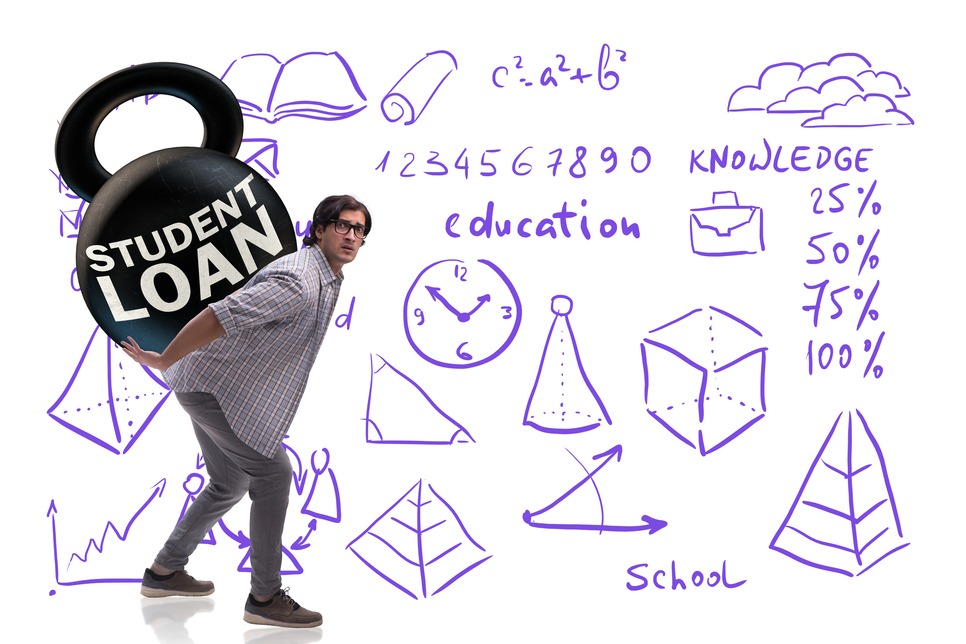In the quest for higher education, many borrowers face the daunting burden of student loans. Student loan forgiveness has been a beacon of hope for many borrowers burdened with these hefty educational debts. The idea of having their loans wiped away after meeting certain requirements can sound like a dream come true. Nevertheless, not everyone may qualify for student loan forgiveness. If you don’t qualify, do not worry, as there are still some benefits and options available to make managing student loans more convenient and less stressful. Read through to explore these benefits and alternatives.
Understanding Student Loan Forgiveness:
Student loan forgiveness is a program that offers financial relief to borrowers. The program works by canceling a portion or the entire outstanding loan balance. This student loan forgiveness requires borrowers to meet specific eligibility criteria. What are the eligibility criteria? You can only qualify when working in public service, teaching, or participating in income-driven repayment plans for an extended period. Unfortunately, not everyone will meet the eligibility requirements for these forgiveness programs. Instead of worrying if you won’t qualify, you should know that there are other avenues to explore that can still offer valuable benefits.
Some Benefits May Include The Following:
Retroactive Credits May Help –
Borrowers may receive retroactive credit toward their 20-year or 25-year student loan forgiveness term, but that will still be short of the threshold for loan forgiveness. Extra credit never hurts, though!
News Is Ever Changing About Student Loan Forgiveness –
While the Education Department’s implementation of the IDR Account Adjustment is currently prioritizing borrowers who have reached the IDR threshold for student loan forgiveness now, borrowers who are short of their loan forgiveness milestone should receive more specific details about where they stand sometime in 2024.
Borrowers Might Need To Take Certain Actions –
Borrowers, who have received notifications since July 14th to inform them about eligibility, do not need to take any action. These include borrowers with Direct Loans or Federal Family Education Loans held by the Department (including Parent PLUS loans of either type) who have reached the necessary forgiveness threshold as a result of receiving credit toward IDR forgiveness.
Get Started With a Free Debt Analysis
We make it easy on mobile or desktop. FREE with no obligations.
Exploring Income-Driven Repayment Plans:
Income-driven repayment plans (IDR) can be a lifeline for those who fail to qualify for student loan forgiveness. What do these plans involve? These plans tailor monthly loan payments to the borrower’s income and family size. This step is vital in making debt repayment more manageable and affordable. Instead of being burdened by fixed payments, you can find some financial flexibility and avoid defaulting on your loans.
What are the Benefits of Income-Driven Repayment Plans?
Income-drive Repayment Plans (IDR) have a wide range of benefits when repaying your student loans. Here are the numerous advantages of this particular repayment plan:
Reduced monthly payments –
Income-driven repayment plans calculate monthly payments based on a percentage of the borrower’s discretionary income. Thus, you may qualify for significantly reduced monthly payments when having lower incomes or substantial family size. The reduction can help you free up funds for other essential expenses, such as housing, healthcare, and child-rearing.
Loan forgiveness after the repayment period –
The potential for loan forgiveness after a specific repayment period is one of the significant advantages of this plan. Depending on the plan, you may become eligible for loan forgiveness after 20 or 25 years of consistent payments. While it may take long, it still offers a path to eventual debt relief.
Avoiding default and negative consequences –
Income-driven repayment plans can be a game-changer when you’re at risk of defaulting on your loans. Defaulting can lead to consequences, including damaged credit scores, wage garnishments, and legal actions. Opting for an income-driven plan can help you stay on top of your repayments and avoid these detrimental outcomes.
Interest subsidies –
Some income-driven repayment plans may provide interest subsidies for eligible borrowers. These subsidies cover a portion of the accrued interest on subsidized loans. Thus, they help prevent the debt from growing significantly while you’re in a challenging financial situation.
Conclusion:
While only some qualify for student loan forgiveness, there are still valuable benefits in income-driven repayment plans. These plans offer reduced monthly payments, the potential for eventual loan forgiveness, and protection against default & its negative consequences. Borrowers facing financial challenges should explore these alternatives to manage their student loan debt effectively. Remember, every step towards repayment counts. Staying resilient is essential on this journey to a debt-free life.
